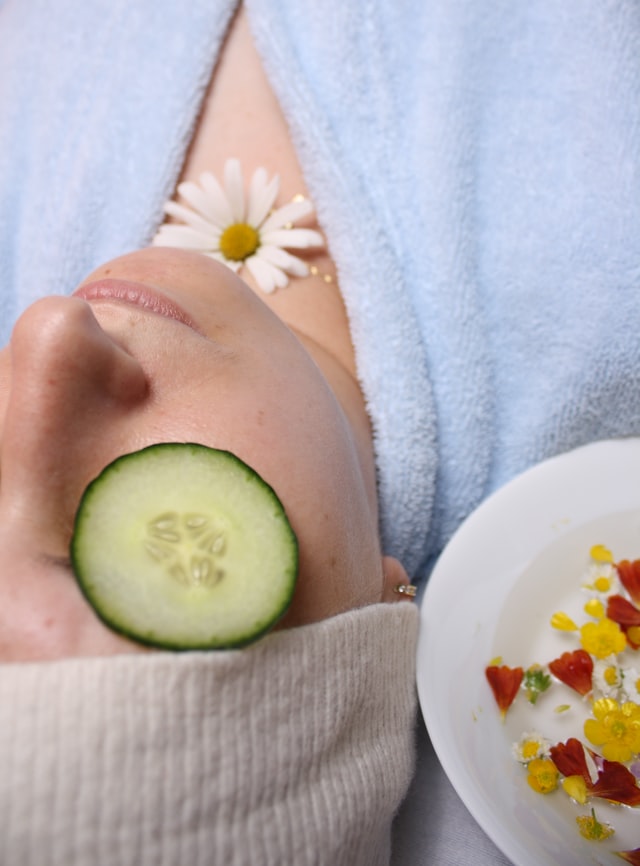This is Part 2 in my article series How I Overcame Insomnia in 10 Steps.
A major contributing factor to insomnia for many people is mental health. I think it’s really about time I addressed mental health on this site, since it is so often a big part of the reason people suffer with insomnia.

My Story
In my case, I had suffered with some form of anxiety or depression on and off since my teens. I’d never been diagnosed, I’d never taken medication nor had any counselling. In fact I’d never seen a doctor about it at all. For years I thought I could manage, it wasn’t that bad, it was normal, etc. (All the same things many people suffering with mental health issues tell themselves.)
I’d started to take it more seriously after a bout of what I assume was post-natal depression, but still avoided seeking help, and was not picked up by my post-natal doctor. Eventually, during my time at university as a mature student, it all got a bit much. The insomnia, the stress, the crippling anxiety that was making me want to hide indoors forever.
And so I approached my doctor about the anxiety I was suffering from, and she was really understanding and gave me some great advice. I was so glad I finally talked about it, and wondered why I’d put it off for so long. I was prescribed a low dose of an anti-anxiety medication as an interim solution, “to get me back on an even keel”. It really helped.
Natural Therapy or Medication?
Although the ethos of this site is natural remedies and avoiding medication, it is definitely worth speaking to your doctor about your mental health as this so often goes hand in hand with insomnia.
I’m not saying that my anti-anxiety medication fixed all my sleep problems immediately – far from it, in fact. I remember feeling frustrated that even after a few months, my insomnia still hadn’t cleared up.
But what it did do was help in the long run by improving one of the major factors contributing to my insomnia. My mental health is much better now, and that has had an enormous knock-on effect on all other aspects of my life, including sleep.
There are other treatments your doctor could recommend, including counselling sessions, which could also be worth trying, CBT (cognitive behavioural therapy) or milder medications or herbal supplements such as St. John’s Wort.
It is always worth speaking to your doctor if you are concerned about your mental health.
Baby Steps
While in the grasp of a mental health problem, it is extremely difficult to take the steps to improve your situation. I know from personal experience.
My advice would be to look for the smallest, closest, easiest thing you can do first, and do that. Baby steps is the key to improving your mental health, starting with what you can do, and working step by step towards the things that currently feel out of reach.
Here are some very small baby steps that helped me to gradually improve my mental health over the space of about a year:
- cleaning one thing in the bathroom
- buying myself cheap flowers from the supermarket
- vitamin D (more on this in my vitamins article)
- going outside every single day (even for 10 mins)
- stopping reading the news constantly
You’ll notice that a lot of these baby steps overlap with the other steps in this article series. That’s because they are all interlinked, and they all work together to make you better.
(For example, my decision to stop reading distressing news every day made a surprisingly big difference to my overall wellbeing, and I’ve written a whole article on the effect of News and Media on insomnia.)

Physical Health and Mental Health
It’s really all the same. Your mind is part of your body. Your mental health is affected by your physical health, and vice versa. I have a whole article on physical health and exercise, but I just want to mention the importance of walking here.
Getting out for some daily exercise and fresh air on a regular basis really does gradually improve your mental health. If you don’t feel you can manage a long walk, start by going to the end of the street. Or the local shop. Or round the block. Build up your confidence and stamina, and work up to a long hike in the countryside.
If you have a fitbit or other health tracker, you could use a step counter to encourage you to spend more time outside. Set yourself and achievable, but slightly challenging goal and work towards it. Then increase once you hit your goal, and repeat.
Vitamins
I won’t go into too much detail here as there is a whole article on vitamins. But suffice it to say, there are countless studies showing that a huge percentage of people are vitamin D deficient, especially in Britain and other northern countries. See these two articles, for example:
https://www.healthline.com/nutrition/vitamin-d-deficiency-symptoms
https://www.ncbi.nlm.nih.gov/pmc/articles/PMC3068797/
The study above calls vitamin D deficiency an “ignored epidemic”. It’s even more common in elderly people, vegetarians, people with darker skin, and those who are overweight.
Vitamin D has a multitude of important functions in the body, and is thought to be crucial in preventing many diseases including diabetes, alzheimers, osteoporosis, depression and even some cancers. Vitamin D deficiency can weaken your immune system and make you more prone to infections, illnesses, fatigue and depression.
If you only start taking one supplement to help with insomnia and mental health, vitamin D would be an excellent choice. Of all the various vitamins and minerals we need, vitamin D is about the most reliably tested – yes we do need it, most of us are at least a little bit deficient, and yes the supplement does make you feel better. Especially in the winter.
If you want to know more about my journey with vitamins and other supplements, I’ve researched and written a whole article on them as part of this series.

Image credit: https://unsplash.com/photos/87InWldRhgs?utm_source=unsplash&utm_medium=referral&utm_content=creditShareLink
Self Care
In addition to these various steps, do not overlook simply making time for yourself.
So many of us are so busy with work, studying, helping children with school work, running the household, and keeping up social lives, self care can sometimes get forgotten about.
We often feel guilty for taking time for ourselves when there are so many other responsibilities we have. But actually, if you don’t make time for yourself, you run the risk of burning out and failing to meet your obligations anyway. And a happy parent is a better parent in virtually any situation I can think of.
Self care means whatever you need to relax. It can mean booking a weekend away with friends when your partner has been out 3 weekends in a row and you haven’t seen your friends for too long. It could mean taking a long hot bubble bath and locking the door. It could be settling down with a good book instead of going to that work function you’re dreading.
Sometimes we just need to learn to say no to other people and take some time for ourselves.
Summary
- Think seriously about your mental health.
- Are you dealing with trauma, bereavement, anxiety, depression?
- Speak to your doctor if you’re concerned.
- Explore treatment options.
- Take baby steps to improve your mental health.
- Get outside, get fresh air, get some vitamin D.
- Don’t forget to make time for self care.

[…] Improve Your Mental HealthAnother contributing factor for me was my mental health. I had already approached my doctor about […]
[…] trigger I identified was my mental health. I talk more about mental health in another article, but I’ll mention it here as it was a key turning point for me to discover how much my mental […]
[…] series of articles, there are lots of factors that affect how well we sleep. We’ve discussed mental health and triggers, and how the media we consume affects our state of […]